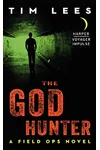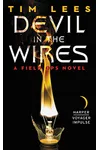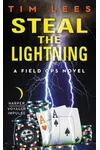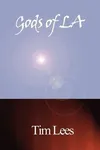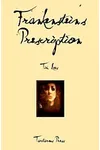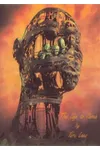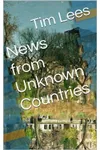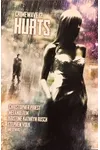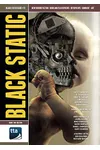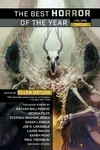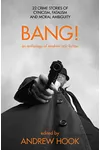Picture a British storyteller who swapped foggy London for Chicago’s windy streets, weaving supernatural thrillers that keep you up past midnight—meet Tim Lees! This master of gothic horror and speculative fiction has carved a niche with his Field Ops series and chilling standalone novels, blending the eerie with the human in stories that linger like a ghost in the attic.
With a knack for capturing the clash between mortals and otherworldly forces, Lees’s works, like The God Hunter and Frankenstein’s Prescription, explore power, belief, and the price of tampering with the unknown. His tales are as much about the human heart as they are about the shadows lurking just out of sight.
The Making of Tim Lees
Born in Britain, Tim Lees crossed the Atlantic to settle in Chicago, where the city’s gritty charm and vast skies fueled his imagination. Before becoming a full-time author, Lees juggled an eclectic array of jobs—teacher, conference organizer, film extra, and even a worker in a psychiatric hospital. These experiences shaped his ability to craft complex characters who face the extraordinary with a very human mix of courage and doubt. His love for speculative fiction blossomed early, inspired by the likes of Mary Shelley and the pulpy thrill of genre magazines like Interzone and Black Static, where he became a frequent contributor.
Tim Lees’s Unforgettable Stories
Lees’s bibliography is a treasure trove for fans of supernatural thrillers and gothic horror. His Field Ops series, starting with The God Hunter (2014), introduces Chris Copeland, a reluctant hero tasked with capturing gods to harness their energy for electricity. This darkly humorous tale, described as Good Omens meets Office Space, blends corporate greed with cosmic stakes, keeping readers hooked with its snappy prose and creepy deities. The sequel, Devil in the Wires, dives deeper into this world, where the line between technology and the divine blurs.
Outside the series, Frankenstein’s Prescription (2013) reimagines Mary Shelley’s classic in a stormy, turn-of-the-century gothic setting. Following a disgraced medical student forced to work at a mysterious asylum, the novel is a philosophical tale of terror, praised by Publisher’s Weekly for its literary depth. Lees’s short story collection, The Life to Come, nominated for a British Fantasy Award, showcases his versatility, weaving horror, sci-fi, and fantasy into haunting vignettes.
Lees’s style is atmospheric yet grounded, with a knack for making the fantastical feel plausible. His themes—hubris, the cost of power, and the fragility of belief—resonate across his works, delivered through vivid characters like the chain-smoking detective Anna Ganz or the flawed yet heroic Chris Copeland.
Why Tim Lees Matters
Tim Lees may not be a household name, but his impact on speculative fiction is undeniable. By blending the supernatural with sharp social commentary, he’s carved a unique space in a crowded genre, appealing to readers who crave both thrills and thought-provoking narratives. His ability to make gods and monsters feel as real as a corporate boardroom has earned him a loyal following among fans of horror and sci-fi. As he continues to write, potentially expanding the Field Ops series into a trilogy, Lees’s influence promises to grow, inspiring new voices in the genre.
- Born: United Kingdom
- Key Works: The God Hunter, Devil in the Wires, Frankenstein’s Prescription, The Life to Come
- Awards: Nominated for a British Fantasy Award for The Life to Come
- Current Home: Chicago, USA
Snag The God Hunter and dive into Tim Lees’s thrilling blend of horror and heart—you won’t look at the shadows the same way again!
